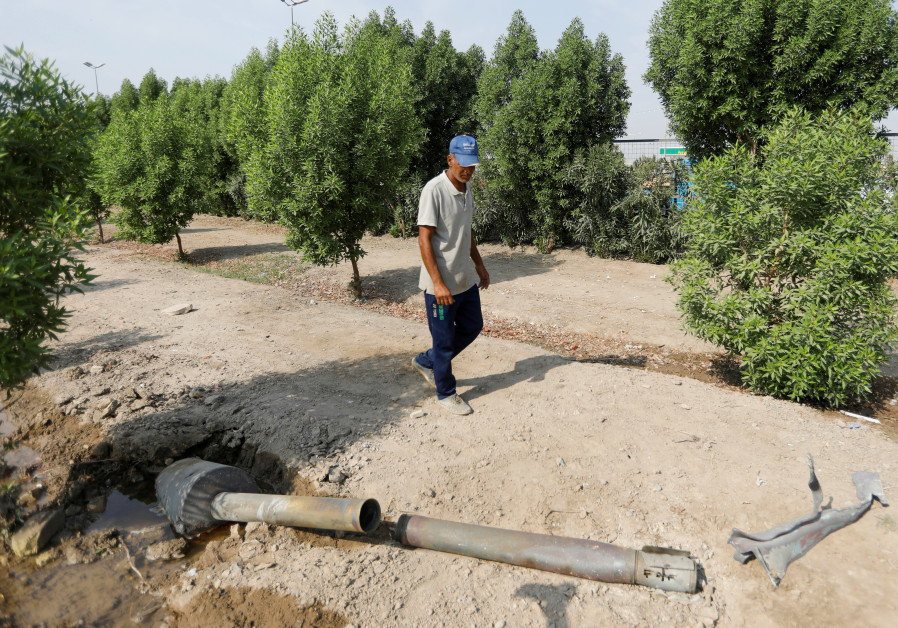Could US forces be targeted amid Iran-Israel tensions in Iraq?

A man glances at a rocket that flew away from an Iraqi militia group’s weapons depot after it caught fire, in Baghdad, Iraq, August 13, 2019. (photo credit: KHALID AL MOUSILY / REUTERS)
The US has been concerned for more than a year that Iranian-backed forces in Iraq pose a potential threat to US forces and contractors. Concerns have been raised in inspector-general reports at the Pentagon, but the recent mysterious explosions at bases of Iranian-linked Shi’ite militias have fueled anti-US rhetoric in Iraq. On Wednesday, the powerful deputy of the Popular Mobilization Forces, Abu Mahdi al-Muhandis, said that the Iranian-backed Shi’ite militias would hold the US responsible for recent alleged airstrikes.
He has claimed that four Israeli drones sent through Azerbaijan were part of a US plot against the PMF. Washington has responded online with an Arabic tweet from Operation Inherent Resolve, saying that the US is only in Iraq to assist its Security Forces and to defeat ISIS. But the larger picture is that militias have targeted America before, with mortars fired near the US consulate in Basra in 2018, and rockets and mortars fired near US forces in May and June as tensions rose with Iran. In addition, some Shi’ite militia units have interdicted US patrols near Mosul and in Anbar province.
The Shi’ite paramilitary groups are divided on how to proceed against the Americans. Some have called for the US to leave or for Iraq to control its airspace better. Others have blamed the US and hold Washington responsible. Many of these groups are already listed as terrorist organizations, and the US sees them as linked to the Islamic Revolutionary Guard Corps, which was also designated as a terrorist group in April.
But the militias have also been officially part of the Iraqi Security Forces since January of 2018. That puts the US in a bind. Washington is working with Baghdad against ISIS, but it sanctioned the IRGC and groups that are formerly part of the security forces. The US has said in the past that it doesn’t work with the PMF when it assists Iraq. But what happens when political parties and militia leaders openly blame America for the mysterious alleged airstrikes on their bases”? The recent explosion was near Balad Air Base where US forces have been located.
After tensions rose with Iran, some of the militia leaders were cautious, knowing a small incident could spiral into conflict. But the firing of mortars and rockets was also a message that they could target US forces. Now, the increased rhetoric by Muhandis, and also members of Asaib Ahl al-Haq and Harakat Hezbollah al-Nujaba – all directed at the US – paint a more dangerous picture.
`; document.getElementById(“linkPremium”).innerHTML = cont; (function (v, i){ });





Comments are closed.